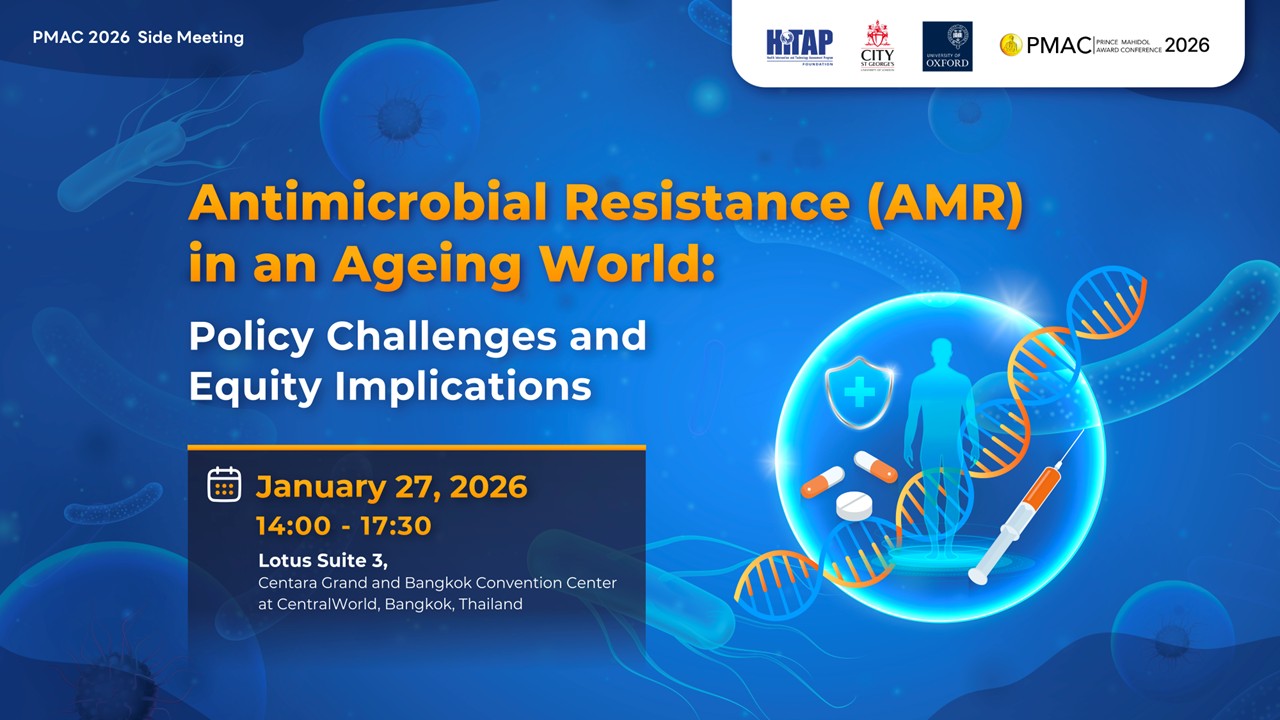Side Meetings
SMB219
Antimicrobial Resistance (AMR) in an Ageing World: Policy Challenges and Equity Implications
27
Jan
- Health Intervention and Technology Assessment Program Foundation (HITAP), Thailand

The intersection between demographic transition and antimicrobial resistance (AMR) is emerging as a critical concern. Older adults not only experience a higher incidence of infection due to physiological decline and greater exposure to healthcare settings such as hospitals and long-term care, but they are also more vulnerable to the adverse outcomes of resistant infections. As populations age, the prevalence of multimorbidity rises, which sharply increases healthcare utilization, societal costs, and long-term care and long-stay residential care costs. Recent research shows that the burden of AMR mortality is rising, especially in older age groups, with a projected sharp increase in deaths among those over 70 by mid-century. Moreover, long-term care facilities are often hotspots of inappropriate antibiotic prescribing and suboptimal infection prevention and control, further fueling the spread of multidrug-resistant organisms among elderly residents. Equity implications are profound: older people in low- and middle-income countries (LMICs), rural or marginalised communities, or with limited access to diagnostics and high-quality health care bear a disproportionate share of risk, and risk being left further behind unless policies are tailored to meet their specific needs. The Global Antibiotic Policy Initiative (GAPi) is collaborative project that aims to derive standard methods to inform policy makers on the most cost effective interventions that achieve optimal antibiotic use to combat AMR across multiple countries. As part of this Thailand-UK led initiative, open access tools that can guide prioritisation of the AMR policy agenda will be developed. This is expected to strengthen the use of evidence in health decision making to tackle the challenge of AMR, and strengthen health systems in the context of changing demographics.
Objectives:
- Highlight the unique vulnerabilities of ageing populations to antimicrobial resistance, with emphasis on health system, policy, and equity dimensions.
- Launch the Global Antibiotic Policy Initiative (GAPi) as a platform for international cooperation on cost effective AMR policy development.
- Define a roadmap for continued stakeholder engagement under GAPi, including research, policy dialogue, and integration of AMR into broader demographic and equity agendas.
Expected outcomes:
- Increased understanding of issues related to AMR in the context of changing demographics
- Increased awareness of the GAPi platform among participants
- Enhanced networks to facilitate policy dialogue and integration of AMR into broader demographic and equity agendas

